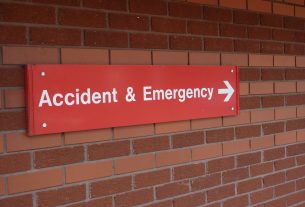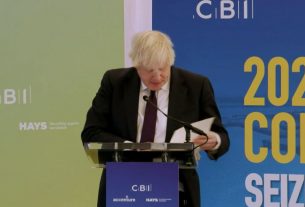Chancellor Rishi Sunak said the UK economy is entering a “new age of optimism” as he delivered a budget that Labour said only benefitted “bankers on short haul flights sipping champagne”.
Sunak said the government’s tax and spending plans – details below – are focused on the “post-Covid” era and will pave the way for an “economy of higher wages, higher skills and rising productivity”.
Rachel Reeves, Labour’s shadow chancellor gave the Budget response – in the absence of the isolating Sir Keir Starmer – and said never have British people been asked “to pay so much for so little”.
Reeves slammed the Conservatives’ “waste, cronyism and vanity projects” and derided Sunak for cutting taxes for banks, the duty on sparkling wines and the air passenger duty on short haul flights.
With the cost of living crisis and the government’s priorities laid out in the budget, Reeves accused Sunak of “living in a parallel universe” and added that “the bankers on short-haul flights sipping champagne will be cheering this budget today.”
Green MP Caroline Lucas castigated Sunak for not once mentioning the climate despite Cop26 being just days away. In a column for the Independent, Lucas wrote: “We heard more about duty on beer, wine and spirits than the climate. Perhaps we are all supposed to drown our sorrows as extreme rainfall floods our homes.”
Jeremy Corbyn tweeted: “You don’t need to look far to before seeing who really benefits from the budget and what Tory priorities are!”
The former Labour leader retweeted a post stating: “The UK Chancellor has handed a £4bn tax cut to banks – the organisations that give measly interest on savings, charge 40% on overdrafts, benefitted from £895bn of QE [quantitative easing], pay mega dividends. The govt says it can’t keep triple-lock on state pensions but gives billions to bankers.”
GBNews presenter Neil Oliver commented: “The budget is like having the guy that stole your car offer to sell it back to you.”
Autumn budget 2021 and the UK economy – key stats, tax and forecasts
- The national living wage will rise to £9.50 an hour next year, an increase of 6.6% form £8.91.
- Universal Credit taper rate – the amount deducted per pound earned by a claimant – will be cut by 8% from December 1, taking it from 63% to 55%.
- The Office for Budget Responsibility (OBR) report inflation in September at 3.1% and predict it rising to an average 4% over the next 12 months, with the UK economy forecast to return to pre-Covid levels in 2022.
- Since February 2020 wages have increased by 3.4% in real terms.
- Business rates for English retail, hospitality and leisure sectors will get a 50% discount in 2022-23, up to a maximum £110,000 – representing a tax break of £1.7 billion.
- Sunak confirmed business rates will be retained and reformed with revaluations every three years and tax relief for green technology investments.
- A consultation will be held regarding an online sales tax.
- The tax surcharge on UK bank profits will be cut from 8% to 3% – saving banks £4bn over five years – while the corporate tax rate for the sector will rise 1% from 27% to 28%.
- The planned rise in fuel duty will be cancelled.
- The economy is expected to grow by 6.5% in 2021 and 6% next year with unemployment set to be 5.2% – less than half of the previously predicted 11.9% rate.
- Borrowing as a percentage of GDP is forecast to fall from 7.9% in 2021 to 3.3% in 2022, continuing the downwards trend to be 1.5% in the following four years.
Sunak’s spending review
- Government spending across Whitehall departments will increase by £150 billion over the course of this parliament – a 3.8% increase in real terms.
- Spending on foreign aid – controversially cut this year – is expected to return to 0.7% of GDP by 2024-25.
- Funding for the devolved governments will increase – Scotland by £4.6bn, Wales by £2.5bn and Northern Ireland by £1.6bn.
- £1.7bn is to be invested in local areas as part of the government’s ‘levelling-up’ programme.
- Courts, prisons and the probation service will get an extra £2.2bn.
- Funding for core science will rise to £5.9bn per year by 2024-25 – significantly less than what was previously promised.
- Health care spending will rise by £44bn – totalling more than £177bn by the end of this parliament.
- The NHS is to get £6bn extra to help clear waiting lists.
- Transport projects outside of London will receive £7bn.
- Funding for schools is to return to 2010 levels – equal to a £1,500 per-pupil increase.
- Schools will get an extra £4.7bn, with £2bn new funding to help recover from the pandemic.
- ‘Start for Life’ parenting programmes will get £300 million and £170m extra will go to childcare.
- A numeracy programme will be launched to boost maths skills for adults.
- £24bn has been pledged for housing projects, including £11.5bn for 180,000 affordable homes.
- £5bn to remove unsafe cladding is to funded by a 4% levy on property developer profits over £25m.
- Schemes to address rough sleeping and homelessness will receive £640m.
High life – alcohol and air travel
- Alcohol duty will be simplified – cutting 15 different rates to six – with stronger drinks subject to higher taxes and sparkling wines subject to the same tax as still wines.
- The planned increase in alcohol duty is cancelled and a new “draught relief” will see draught beer and cider subject to lower rates, cutting the price by 3 pence per pint.
- Domestic flights will be subject to a lower air passenger duty from April 2023, while a new ultra long-haul rate will see passengers flying more than 5,500 miles charged more.
- English airports are to get an extra six months financial support from the government.




